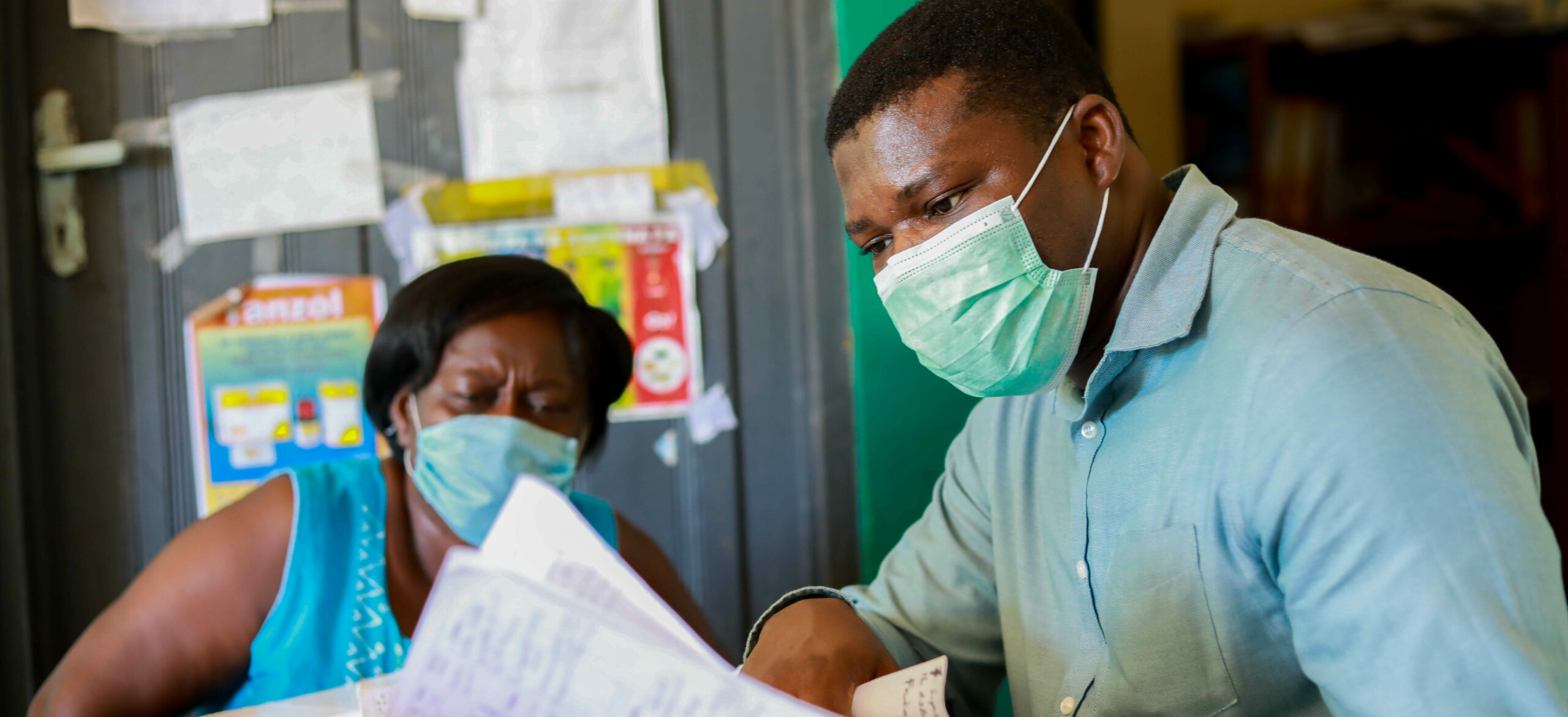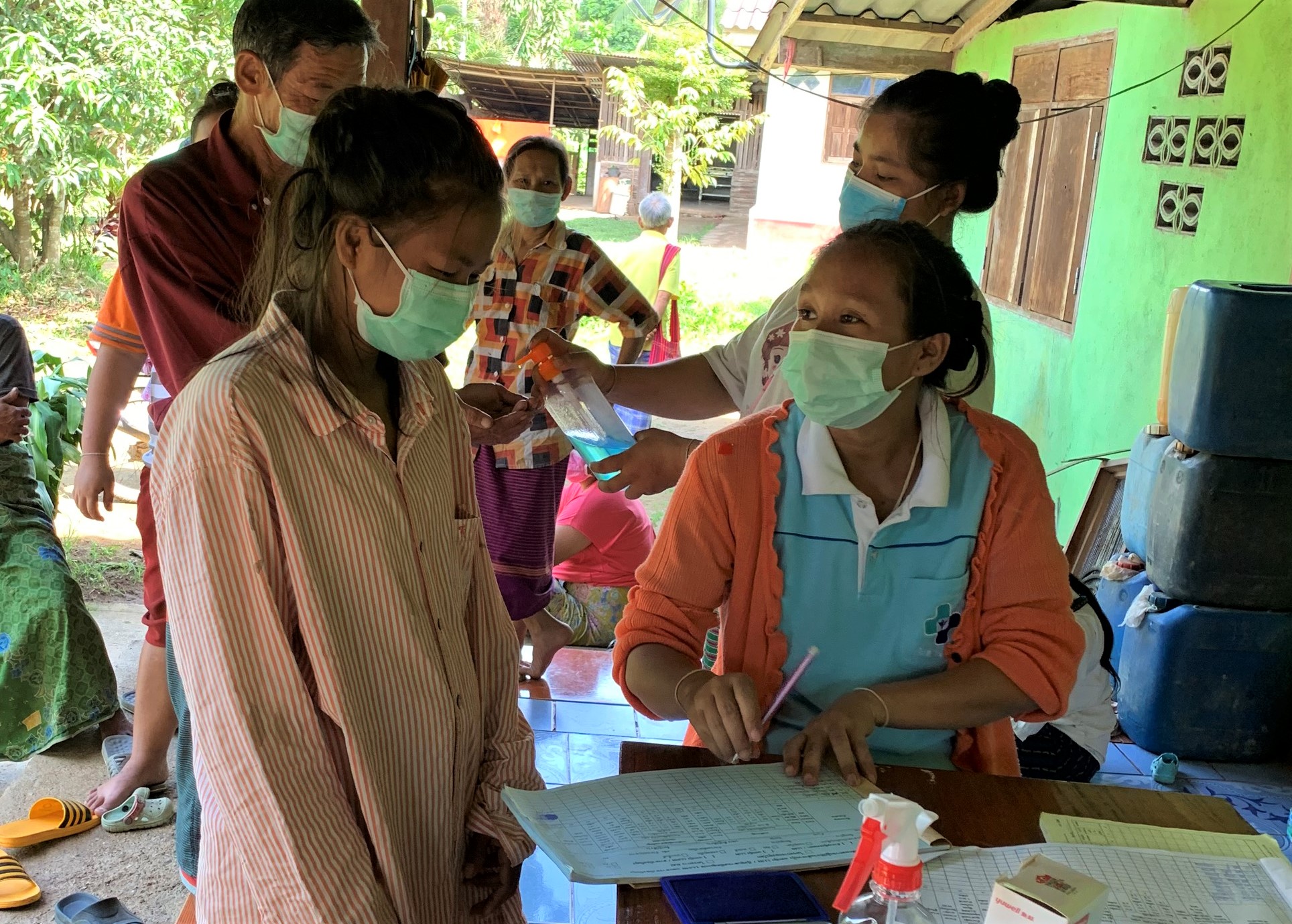Gathering Evidence to Better Understand How Countries Are Responding to COVID-19
Published on February 10, 2021

The COVID-19 pandemic has pushed health systems to their limits, exposing critical gaps in public health infrastructure even in countries previously thought to have high-performing health systems.1 Health systems in many low- and middle-income countries are already burdened with managing conditions such as HIV, tuberculosis, malaria, and malnutrition, as well as providing care for women and newborns.2,3 The spread of COVID-19 in these countries threatens to further increase the burden of poor birth outcomes.4
Better measurement, learning, and sharing lessons learned are urgently needed if we wish to improve access to services and quality of care for mothers, newborns, and children.
Better measurement, learning, and sharing lessons learned are urgently needed if we wish to improve access to services and quality of care for mothers, newborns, and children. How do we accomplish this? MOMENTUM collaborates with partners to build and adapt to new evidence that improves global health policy and programs. Since the start of the global pandemic, MOMENTUM has been using data from past disease outbreaks and gathering emerging evidence to support countries in preventing and responding to essential service disruptions.
Translating Emerging Evidence into Action
Despite limited resources, some countries are trying to figure out how to continue providing essential health services during the pandemic. MOMENTUM’s rapid evidence summary* findings reveal that countries are putting in place measures to maintain access to maternal, newborn, and child health, voluntary family planning, and reproductive health (MNCH/FP/RH) care.
For example, to reduce disruptions in the medical supply chain due to supply and workforce challenges, countries are developing product delivery contingencies, such as re-routing shipments or changing the mode of transport (e.g., to ocean freight or road transport) to ensure essential goods arrive in time to those who need it most.
To counter lockdowns and curfews, which have made it difficult for women, particularly in remote areas, to reach health facilities, some countries have developed protocols designating MNCH/FP/RH care as essential to ensure care continues. Some countries have also improved coordination and strengthened the use of data for rapid, dynamic decision-making. For example, reallocating staff and shifting responsibilities across different types of health providers have allowed countries to care for people with COVID-19 as well as people needing essential MNCH/FP/RH services.

Fear of contracting the virus has led to fewer women seeking health care in some countries. The summary findings show that at the facility level, countries have put in place COVID-19 risk reduction strategies to increase safety for health care workers, such as social distancing mandates, personal protective equipment, and protocols to identify people infected with COVID-19.
Helping pregnant women and mothers continue to access essential care is critical. Some countries are using and coordinating local community emergency transport systems to ensure transportation to health facilities is available, especially to women and newborns experiencing complications during birth. Districts and facilities have also adapted training, learning, supervision, and delivery methods to make sure that essential supplies and goods reach remote locations. For example, in Malawi, drones are now being used to distribute health supplies to hard-to-reach areas.
A Platform for Exchange
MOMENTUM also works to foster dialogue and knowledge exchange among its partner countries. Over the summer, MOMENTUM† held a series of webinars that brought together countries such as India, Tanzania, Ethiopia, Bangladesh, and Nigeria to discuss strategies and best practices that enabled them to continue providing MNCH/FP/RH care during the pandemic. This dialogue included conversations about innovations, such as using telehealth platforms to identify high-risk pregnancies in India and apps to support assessments for facility readiness. Participants learned how Tanzania mitigated personal protective equipment shortages by using local resources to make protective equipment and handwashing supplies for its community health workers.
To address increases in gender-based violence (GBV) due to lockdowns,5 participants learned how Nigeria has designated GBV services as essential and integrated them into other reproductive, maternal, newborn, and child health and nutrition services. Throughout this exchange, country participants discussed ways they identified challenges and highlighted concrete strategies that allowed them to prepare for disruptions.
Moving Forward
By gathering emerging evidence on strategies and adaptations in response to COVID-19, and fostering dialogue between countries to discuss lessons learned, MOMENTUM has helped generate new learnings that will ultimately support countries to better prepare for and respond to the pandemic. Moving forward, we will continue to work with our partner countries to gather more evidence, agree on strategies, devise protocols, and implement what we know is working.
For more information about our MOMENTUM projects or to access MOMENTUM resources, visit us here.
*Last November, MOMENTUM Knowledge Accelerator conducted a rapid evidence summary to recommend ways MOMENTUM awards and USAID Missions can respond to drops in maternal, newborn, and child health, voluntary family planning, and reproductive health care coverage during the pandemic. The analysis focused on responses to COVID-19 and their effects in low- and middle-income countries, all sourced by peer-reviewed articles and academic and government reports.
†To address disruptions in essential health services, last year, MOMENTUM Country and Global Leadership held a series of webinars that brought together global and country partners, including the ministry of health counterparts, from around the world to capture and exchange country experiences during the COVID-19 pandemic. More than 1,900 participants from 100 countries worldwide participated in conversations about innovations during the pandemic to ensure that health systems are more resilient and efficient.
References
- Lal, Arush, Ngozi A. Erondu, David L. Heymann, Githinji Gitahi, and Robert Yates. 2021. “Fragmented Health Systems in COVID-19: Rectifying the Misalignment Between Global Health Security and Universal Health Coverage.” The Lancet 397: 61-67. https://www.thelancet.com/journals/lancet/article/PIIS0140-6736(20)32228-5/fulltext
- Chou, Victoria B., Neff Walker, and Mufaro Kanyangarara. 2019. “Estimating the Global Impact of Poor Quality of Care on Maternal and Neonatal Outcomes in 81 Low- and Middle-income Countries: A Modeling Study.” PLOS Medicine 16(12): e1002990. https://doi.org/10.1371/journal.pmed.1002990
- Timothy Roberton et al. 2020. “Early Estimates of the Indirect Effects of the COVID-19 Pandemic on Maternal and Child Mortality in Low-income and Middle-income Countries.” Lancet Glob Health 8 (2020): e901–08. https://doi.org/10.1016/8: e901–08
Mittal, Shalini and Tushar Singh. 2020. “Gender-Based Violence During COVID-10 Pandemic: A Mini-Review.” Front Glob Womens Health, September 8, 2020. https://doi.org/10.3389/fgwh.2020.00004 - Vaeza, Maria N. United Nations: UN Chronicle. 2020. “Addressing the Impact of the COVID-19 Pandemic on Violence Against Women and Girls.” November 27, 2020. https://www.un.org/en/addressing-impact-covid-19-pandemic-violence-against-women-and-girls
COVID-19
To fight the COVID-19 pandemic, we're ensuring the continuity of lifesaving health care, strengthening resilience, and sharing best practices so that women, children, and their communities continue to receive the care they deserve during this crisis.

